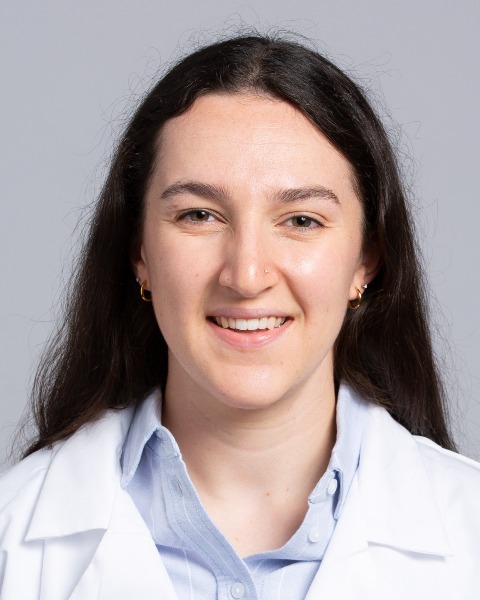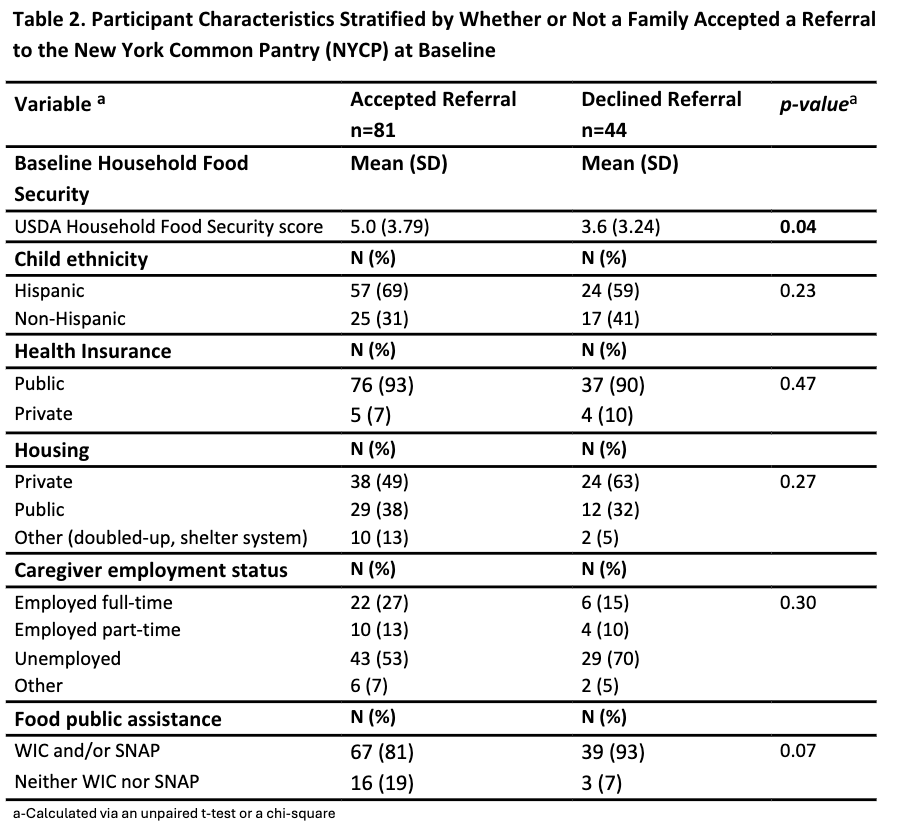Health Equity/Social Determinants of Health 7
Session: Health Equity/Social Determinants of Health 7
741 - Exploring Referrals and Resource Engagement within a Food Insecurity Screening Program at a Pediatric Clinic in East Harlem, NYC
Sunday, April 27, 2025
8:30am - 10:45am HST
Publication Number: 741.4933
Phoebe May, Icahn School of Medicine at Mount Sinai, New York, NY, United States; Likhitha Patlolla, Icahn School of Medicine at Mount Sinai, New York, NY, United States; Lauren M. Zajac, Icahn School of Medicine at Mount Sinai, New York, NY, United States; Jennifer Acevedo, Icahn School of Medicine at Mount Sinai, New York, NY, United States; Shachi Mistry, Mt. Sinai, Dept. of Environmental Medicine and Public Health, Jersey City, NJ, United States; Chris Gennings, ICAHN SCHOOL OF MEDICINE AT MOUNT SINAI, New York, NY, United States; Leora N. Mogilner, Icahn School of Medicine at Mount Sinai, New York, NY, United States

Phoebe May (They/She)
Medical Student
Icahn School of Medicine at Mount Sinai
New York, New York, United States
Presenting Author(s)
Background: Food insecurity (FI) has a crucial impact on pediatric health. Programs that screen for FI in pediatric populations and offer interventions such as emergency food packages and referrals to community organizations may impact FI and therefore child health. Understanding the characteristics of families who accept or decline offered resources and the barriers that impede enrollment in services is vital to optimize interventions.
Objective: To examine the overall cohort and analyze key differences between caregivers who accepted or declined a referral to a community partner, New York Common Pantry (NYCP), and identify barriers to enrolling as clients with NYCP from a pediatric practice in East Harlem, NYC.
Design/Methods: Between 6/21-7/23, study enrollment was offered to caregivers of patients 0-10 years-old who screened positive for FI using Hunger Vital Signs. We collected baseline sociodemographic data and referral data at baseline and 3 months. We did not collect data about reasons for not enrolling at 12 months. Caregivers completed the USDA 18-item household food security questionnaire (higher scores indicate less food security) at baseline, 3-month and 12-month follow-ups. Descriptive statistics were used to evaluate the cohort.
Results: 125 families enrolled, and 116 (92%) of the children had public insurance (Table 1). At baseline, the mean USDA score was 4.5 (SD 3.7), 81 (71%) scored "low” or “very low” levels of food security, 106 (84%) received WIC and/or SNAP and 81 (65%) accepted NYCP referrals while 7 (6%) were already enrolled. Those who accepted a referral had a higher baseline USDA score (5.0 vs 3.6, p=0.04) and tended to have WIC and/or SNAP at a lower percentage (81% vs 93%, p=0.07) compared to those who declined a referral (Table 2). At 3 months, 30 (38%) referred families were enrolled as NYCP clients. Among those who did not become clients, the most common reasons were caregivers not completing enrollment after initial intake with NYCP (49%), and lack of connection with NYCP for initial intake (27%). Only 12% reported losing interest in pantry enrollment (Table 3).
Conclusion(s): Families with FI who accepted a referral to a local food pantry had lower food security at baseline compared to those who declined referrals. Furthermore, over 15% of families were not receiving WIC or SNAP at baseline, presenting an opportunity for intervention to improve access to food resources among this population with FI. Future studies will evaluate the impact of onsite enrollment in WIC and SNAP on FI status, as well as the impact of increased case management capacity at NYCP to facilitate enrollment.
Table 1. Characteristics of Families with Food Insecurity with Children 0–10 years old at a Primary Pediatric Clinic in East Harlem, NYC (N=125)
Final-Table 1 Abstract.jpeg
Table 2. Participant Characteristics Stratified by Whether or Not a Family Accepted a Referral to the New York Common Pantry (NYCP) at Baseline

Table 3. Summary of Enrollment Status and Barriers to Enrollment at 3 months Among Caregivers who Accepted a Referral to New York Common Pantry (NYCP) at Baseline (N =80)
.png)

